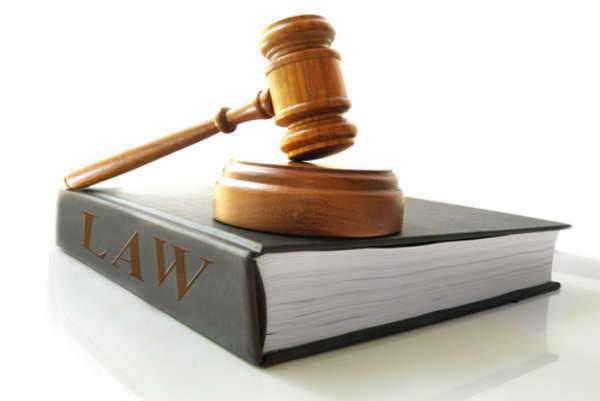Eleventh Amendment
The Eleventh Amendment to the United States Constitution is one of the lesser-known amendments, but it has played an important role in American law and politics. It was ratified in 1795 and clarified the legal status of states in relation to federal courts. In this article, we will explore the history and significance of the Eleventh Amendment, and how it has been put into practice.
The Eleventh Amendment arose out of a Supreme Court decision, Chisholm v. Georgia, in 1793. This case involved a dispute between a citizen of South Carolina and the state of Georgia over unpaid debts. The Supreme Court ruled in favor of the citizen, stating that the state could be sued in federal court by a private citizen. This ruling was controversial, as it suggested that states were not immune from lawsuits in federal court.
The Eleventh Amendment was proposed in response to this, and it quickly gained support from many states. In essence, the amendment reaffirmed the states' immunity from lawsuits in federal court. It states that "The Judicial power of the United States shall not be construed to extend to any suit in law or equity, commenced or prosecuted against one of the United States by Citizens of another State or by Citizens or Subjects of any Foreign State."

The Eleventh Amendment has been the subject of much legal debate. Some argue that it represents a crucial safeguard against an overly powerful federal government, while others believe that it has been used to shield states from liability in cases where they have violated citizens' rights.
One of the most notable applications of the Eleventh Amendment has been in cases involving state sovereign immunity. This refers to cases where individuals or entities seek to sue states for violating federal or state law. The Eleventh Amendment has been used to prevent such lawsuits from being heard in federal court, and has limited the ability of individuals to hold states accountable for their actions.
The Eleventh Amendment has also been used to limit the power of federal courts in certain cases. For example, it has been used to prevent federal courts from hearing cases involving state taxation, which is seen as a matter of state sovereignty.
In conclusion, the Eleventh Amendment to the United States Constitution is an important but often overlooked component of American law. It reflects concerns about the balance of power between the federal government and the states, and has been used to clarify the legal status of states in relation to federal courts. While it has been the source of much debate and controversy, it remains an essential part of the American legal system, and is likely to continue to shape American law and politics for years to come.
The Eleventh Amendment was the first to revise theConstitution after the ratification of the first ten in the Bill of Rights. TheEleventh Amendment was passed by Congress on March 4th, 1794, and ratified by a 3/4 State majority on February 7, 1795--New Jersey and Pennsylvania being the only two states not to ratify the Eleventh Amendment.
The Eleventh Amendment states, "The Judicial power of the United States shall not be construed to extend to any suit in law or equity, commenced or prosecuted against on of the United States by Citizens of another State, or by Citizens or Subjects of any Foreign State." In other words, the Federal courts are limited and restricted from hearing lawsuits against any State's government that are brought by citizens of another State or foreign country. An example of this would the State of New York enacting the Eleventh Amendment to protect itself from being sued in a Federal court by people living in the State, as well as residents of other states, or a foreign country.
The Eleventh Amendment resulted due to Chisholm v. Georgia, in which AlexanderChisholm sued the State of Georgia for a debt that was owed to aCaptain Robert Farquhar. Farquhar was a merchant in South Carolina that soldsupplies to the State of Georgia on credit. After the war,Georgia decided that it would not pay its debt on the basis that Farquhar wasallegedly a British loyalist. Farquhar left Chisolm as the executor of hisestate upon his death, which enabled him to bring suit against Georgia.
The lawsuit washeard by the Supreme Court and rendered a decision in Chisolm's favor. Theverdict would be the subject of much controversy and disapproval by the manystates, most obviously and notably, the State ofGeorgia. The resentment was such that the State ofGeorgia passed a law stating that anyone that would adhere to the verdict givenin the Chisholm case wouldbe liable to hanging.
The EleventhAmendment was drafted and proposed, and quickly ratified into law, whichreversed the original decision by the Supreme Court judicial branch. Theprotection of the State from being sued in a Federalcourt became known as sovereign immunity. Originally, the Eleventh Amendmentonly barred citizens of other states suing a State in ajudicial branch jurisdiction, but it was extended to include residents of thesame State aswell through the Hans v. Louisiana case.
Even though sovereign immunity is granted by theEleventh Amendment, there are four exceptions in which the Supreme Court and Federaljudicial branch may hear a lawsuit levied against a State. TheEleventh Amendment does not protect a State'spolitical subdivisions, such as counties, cities, or municipalities, and areall liable to be sued in a Federal judicial branch jurisdiction. Also,under the Eleventh Amendment, states have the right to waive their sovereignimmunity and allow themselves to be sued in a Federalcourt. In certain cases, Congress allows for a State to besued and heard in a Federal court under the Due Process Clause ofthe Fourteenth Amendmentspanhggs". The lastexception relates to the citizens seeking injunction against State officials ina Federal court, if under violation of a Federal law. The litigation remedy appliesstrictly to only injunctive relief, but not monetary damages that would befurnished by the State's Treasury Department.